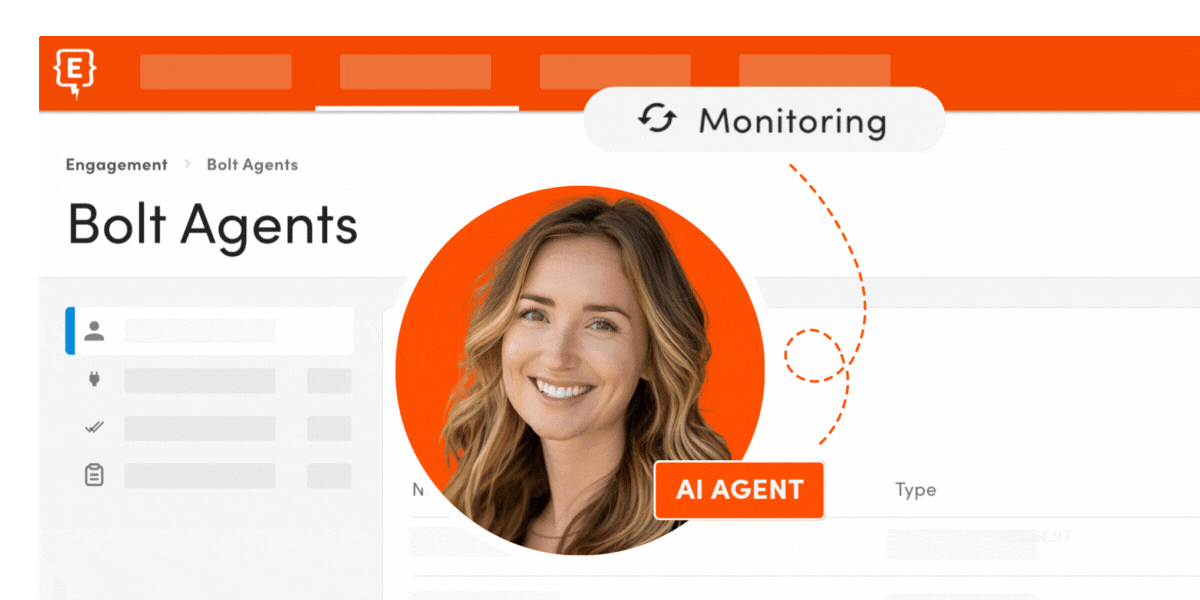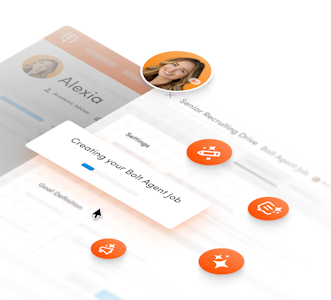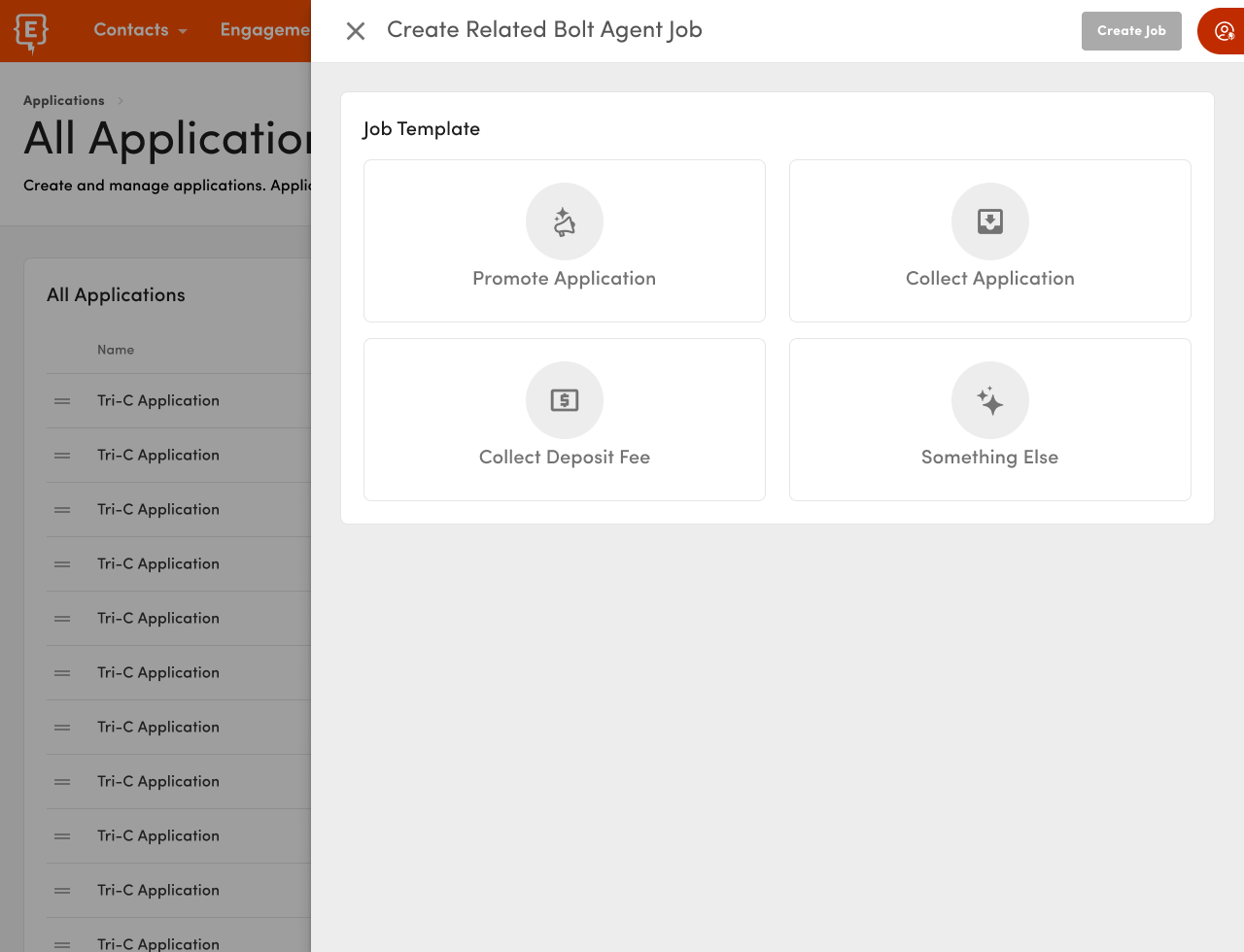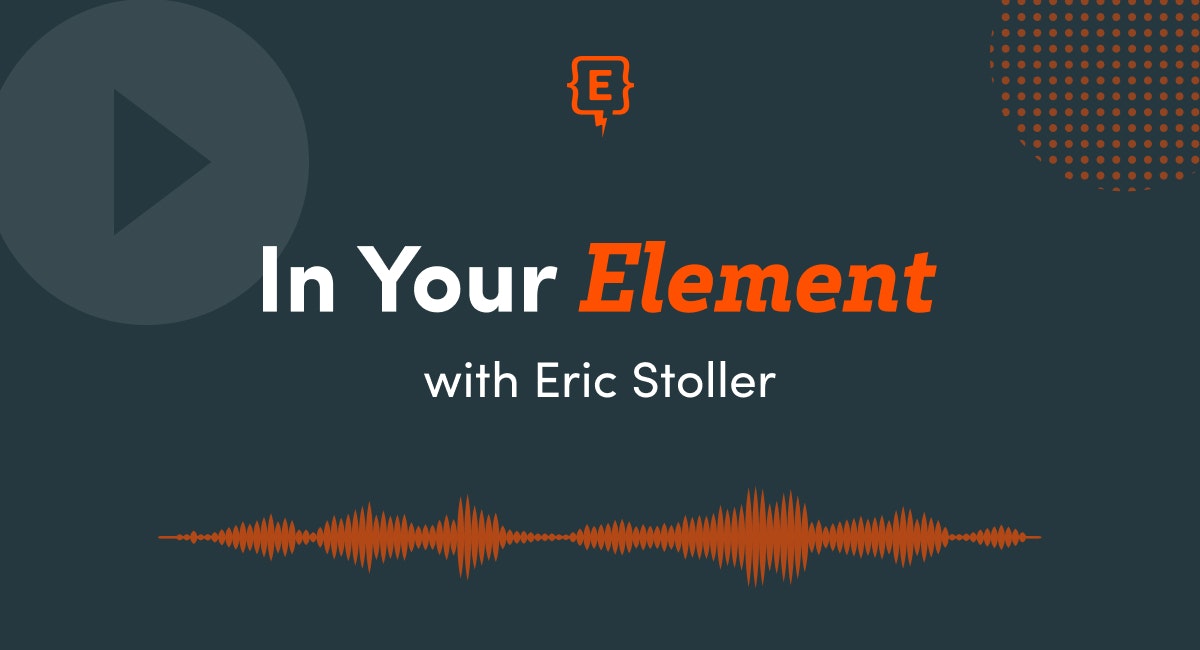The Power of Experience-Based Recruitment — Why Nik Higgins Believes Peer to Peer Connection Can Solve the Struggle for Recruitment
by Sirley Carballo · Dec 06, 2021

On our latest episode of the In Your Element Podcast, Nik Higgins, Co-founder, Chief Growth Officer at The Ambassador Platform (TAP), sits down with host Eric Stoller to chat about the biggest challenges and innovations happening in higher ed. Together they discuss how harnessing the authenticity of a current student experience can be a solution to higher eds biggest issues. Other topics include:
- What is an Experience Communication Management (XCM) platform?
- Why peer-to-peer experience based tools provide equity for students from underrepresented communities
- How the pandemic has upped the pace of adoption in digital transformation
- How universities and colleges can benefit from technologies used in other sectors
Listen to Episode 7 of the In Your Element Podcast here.

The point is to help a prospective student understand that your institution is the best fit for them. How that's delivered is changing, and will continue to change.

Full Transcript of Episode 7
Nik
You're trying to draw people in to a very complex life changing experience. That's what you're trying to sell to them. And it's impossible for anyone who hasn't got first hand experience of that to persuasively advocate for it. And I think that's where connecting peers, connecting real students with real students, really comes into its own and poses a very powerful solution for higher ed recruitment.
Eric
Welcome to In Your Element, a podcast on the Enrollify Podcast Network, brought to you by Element451, an advanced student engagement CRM, providing higher ed institutions with a competitive admissions advantage from recruitment to enrollment through the use of AI. On each show, we ask five questions about current challenges, exciting opportunities, and what's next in higher education. I'm your host, Eric Stoller, and on today's show, we welcome Nik Higgins, Chief Growth Officer at The Ambassador Platform, also known as TAP. Like we heard in the last episode, with Vanessa Didyk from ZeeMee, students are trying to find the right college experience, the one where they can fit in and be their full selves but they can't always do that on a University website, or social media or even taking tours of a campus. That's why platforms like ZeeMee and The Ambassador Platform exist. So students can feel connected and engaged with their higher ed institution, even before they walk across the quad for the first time. For Nik and The Ambassador Platform, they've developed a new way to connect called XCM.
Nik
So the XCM platform's a new kind of technology and it's built with education providers specifically in mind. It enables them to give prospective students who can be anywhere in the world an authentic insight into what their institution's really like. And it does this by facilitating connections between prospects and ambassadors that happen via user generated content, peer to peer conversations, and live video streams. And it's really exciting. XCM platform can be deployed by a university or college in so many ways.
Eric
And on today's show, Nik talks to us about those ways that XCM can be deployed, including how peer to peer engagement can be such a recruiting advantage for higher ed. Because recruiting, well, it's not easy. And then the pandemic hit. Of course, for both countries, it's a global event. Prior to the pandemic and now as well a little bit post pandemic, recruitment in higher ed is kind of getting more and more challenging. Why is that? What can we do about it?
Nik
Well, you know what, can we start with the question of why it is so challenging? Because I actually think that there's a real structural issue here that I think isn't always well understood. And I think actually points towards the solution. And I should say that this question probably needs some other PhDs to answer it, which I certainly don't have.
Eric
If only you went to a proper university.
Nik
I wish. Yeah, I wish or maybe studied a bit harder. But this, this is what I think about the, you know, the fundamental root of the challenge. I think recruitment to higher ed institutions is challenging or challenging thing to do, because what's being offered to a prospective student is a really complex thing. Perhaps speaking in a more commodified language, the product that's been sold to prospective students is very complicated. It's very complex. You know, it's not just the qualification, it's the opportunity to live in a new place, to try new things, to meet new people, build a career path, become fascinated by quantum mechanics. I mean, the list is endless. And I think that the best way to describe this nebulous cloud of things is as an experience. And then, you know, if we work this logic back into the question of why recruitment in higher ed is so challenging, I think what we're actually asking, what we're actually thinking about is why it's so challenging to recruit people to an experience. And I think if we think about it like this, you know, the crux of the problem becomes self evident, at least to me. Experiences are searched, nuanced, highly personal things and they're perceived by people in radically different ways. So as a recruiter, your job or your challenge becomes trying to codify an experience, a highly complex thing which consists of a dizzying amount of variables, into something that you can, package up and talk about yourself, that you can write down in a prospectus or capture in a two minute aerial video that your marketing team produces. And you know, when you think about that, that really is a very big and very genuine challenge.
Eric
Especially when everyone you know... I used to make the joke that everyone in the UK was putting out imagery of a couple of students sitting underneath a tree with some books on a blue sky, non rainy, you know, sunny day, and which we all know is not always the norm.
Nik
Yeah, exactly. That's really funny. Someone told me once that that was called Three in a Tree, that kind of fall imagery, with the students the tree, in a blue sky background, but exactly! That image, and I realize this is a radical oversimplification, but that image is never going to capture the totality of what a student is going to experience at your institution. It's probably not even going to capture a tiny fraction of it. And if that is the vehicle that you're using to communicate what you know, what your amazingly nuanced university or college is about, if that's one of your recruitments tools, one of the leever that you have to drive decision making, it's always going to be an uphill battle.
Eric
Yeah, well, that's striving for authenticity, and the real in spaces where that hasn't always been the case. I saw an interesting marketing video from Keele University, where they had apparently handed a GoPro camera to a student to kind of film a walk around campus, kind of a tour, and the individual who had been given the camera didn't realize they were filming themselves, as opposed to the beautiful campus. And it was lovely, though, because it's like he's sort of beautifully awkward in the sense that it actually shows his facial expressions and how he's encountering the environment. And it made me think about, my next question which is, how is peer to peer engagement a recruitment differentiator for universities?
Nik
Another great question, Eric. Well, I think, sorry, not to be contrary, but I think if it's all right, I'd probably actually like to broaden that term out. And I think we can probably call it something different.
Eric
You can be contrary as much as you want.
Nik
I think we can call it you know, experience based recruitment or engagement, and I do think, of course,peer to peer interactions, our conversations are a key component of that. But I think it's a differentiated, really, because of what we've just covered in the previous question. Translating an experience, and being part of a university or a college or any education provider, as a student is genuinely an experience and translating that into a neat little package is really difficult. Now, particularly if you are a recruiter, and you've never actually lived that experience, but most recruiters, they may have been students of the institutions, but probably, it's just, they happen to work at the institution, and their job is to promote it and to sell the institution. If you have been through that yourself, it's incredibly difficult to be able to persuasively or authentically or convincingly talk about the nuances that make it. So I think that connects in what we call in here, Peers Together, therefore, is an ideal solution to this challenge. What you do there is sites that need for recruiters to try and talk about what it's really like as opposed to here, you're kind of cutting out the middleman. And instead, what you do is allow someone who's in the thick of or right in the middle of living the experience to talk directly to a prospective student in a way that resonates with them, and has the level of authenticity and accuracy that's otherwise very difficult to to achieve. You know, the question you asked me before, is so complicated. "Why is higher ed recruitment difficult?", and I'm sure we could talk for hours about that. But I do think trying to keep it simply, it comes down to the fact that you're trying to draw people in to a very complex life changing experience, that's what you're trying to sell to them. And it's impossible for anyone who hasn't got first hand experience of that to persuasively advocate for it. And I think that's where connecting peers, you know, connecting real students with real students really comes into its own and, and poses a very powerful solution for higher ed recruitment.
Eric
That's a great answer. Thanks for kind of taking it in that that direction. The idea of students sharing their experiences. It's really the idea of they're actually walking in those shoes. They're in that, in those courses, they're taking the modules, they're eating at the cafes on campus, they've they know all the stories and all the tales and things.
Nik
Yeah, you're right, Eric, but it's even more than that, you know, and people are probably thinking, goodness me, this is very meta answer to quite a straightforward question. But you know, it is more than that the students at an institution. Yeah, they know the cafes, and all the cool spots to hang out, they're probably playing on a sports team. But they're also feeling the changes that studying at this particular place or living in this new city, is is having on them. They're experiencing firsthand in a very personal way, their changes to their thought process and the way that it's allowing them to rethink and rephrase their future opportunities. It's just so highly personalized, and so predicated on the needs of being able to talk about it that, I'm kind of surprised that it's not been a feature of recruitment in higher ed more prominently in the past. But yeah, there we go.
Eric
Widening participation (WP) is a phrase that's used in UK higher education. Probably the closest equivalent in the US is maybe DEI, diversity, equity, inclusion. Very important, obviously, not just for higher ed institutions, but to society at large. And I was just curious about how does TAP foster both you, WP and DEI using XCM?
Nik
That was amazingly phrased, Eric?. Well, I think the first thing to say is that the ambassador platforms are already been actively used by institutions as what we call in the UK, a widening participation tool. The AI tool in in American parlance, and some really prominent universities like Oxford and Cambridge have embraced it as something that can demonstrably enhance that outreach work with prospective students from underrepresented groups. And, you know, that's amazing, of course, but actually, this kind of work's always been pretty fundamental to our mission at TAP. And, you know, the problem of fair access or educational equity, however you phrase, it is obviously incredibly fraught and complicated, and has different permutations, depending on you know, which country we're talking about. But I do think the part of the solution that The Ambassador Platform offers is, is actually quite simple. Young people from communities that are underrepresented in higher education, plagued by the worst kind of systemic misassumptions, you know, they often feel that a university or college isn't for them. That there isn't going to be anyone like them there or, you know, perhaps they believe that some kind of outdated institutional traditions still persist. And and I think what's TAP does is enable institutions to dispel these kind of myths that help young people from these communities see in a really, hate to say authentic again, but in an authentic and unfiltered way what their institution is really like, and also that there are other people like them there. And I think really importantly, as well, I think it provides quite a lot of agency to young people from underrepresented groups, through our platform on their terms, they can find and engage with someone that they identify with, and they can ask questions that they have, in a way that feels comfortable to them, and without fear of looking silly or asking the wrong thing. And I just think as an anecdote, I spent the early part of my career working in further education, which for every American listeners, is the two years before you go to university in the UK. So I was working with kind of 16 to 19 year olds. And my job was to work with young people from disadvantaged backgrounds or from communities that were underrepresented in higher education and help them make the journey to study at university. And, you know, no matter what I said to these young people as their teacher, and no matter what a representative from a university who might come and visit the school would say to them, the thing that really made the difference was being able to connect with and engage with someone that they identified with, someone that they felt comfortable speaking to, someone that they believed was going to give them honest answers and can talk about their experience, particularly at university or college. And really, what TAP's trying to do is make these kinds of connections. Way back in the past, I had a set up by inviting student ambassadors to come and sit with my students in the school that I worked in. We're trying to make these connections available to as many prospective students as possible, whenever they need them, and wherever they happen to be, however distant socially or geographically from an institution they are. We want to make those kinds of connections available, because going back to what we were talking about before, by enabling people who are living it, to talk authentically about what the experience is really like, you can in a very real way help to dispel myths and assumptions that possess and perhaps prevent young people from underrepresented groups and communities from accessing higher education.
Eric
That's a great answer. Thanks for that. And Nik, how do people do these engagements? Is it on desktop or mobile? Or how does that actually take place?
Nik
Yeah, so for prospective students, they can engage with The Ambassador Platform, either on desktop, or through mobile. So what we call the TAP feed, which is the front end view for prospective students. So this is a searchable feed that shows profiles of student ambassadors, group chats, user generated images, videos and answers that the ambassadors have created that just provide this wonderful window into the institution. That feed lives on a university or college's website. And it's there that a prospective student engages with it, and yet they can access that by by mobile or via desktop.
Eric
Now, you know, TAP is an edtech platform. At the end of the day, how was the pandemic influenced the speed of digital transformation now and the adoption of edtech at unis in the UK or some of the other countries that you're working in?
Nik
Yeah, I mean, I don't know what you think, Eric, but I think it's still very much a present tense thing, isn't it? You know I think we're still feeling the effects of the pandemic in the sector, and will for some time. And I think the straightforward answer is that it's definitely upped the pace of adoption in digital transformation. There's no doubt about this. But I think there's actually a really interesting reason for this. You know, in other sectors, I'm thinking outside of higher ed, the emphasis for digital transformation is very much driven by the continuous quest to find efficiencies. Sure, we all recognize this. Commercial targets, and ultimately, the profit motive, make the adoption of new technologies a kind of constant prerequisite. The thing is, at least by my assessment, universities and colleges exist in a slightly different space that different kinds of entities. I suppose we could describe them as perhaps quasi-commercial. And I think personally, it's quite right, that the universities are not businesses, in the classical sense of the term. They're centers of education and learning. However, what I think this does mean, though, or certainly has meant in the past, is that there's room for an incumbency of approach. I'm using inverted commas here.
Eric
In quotes, in quotes, I'll translate your version of English.
Nik
Thank you. Yeah, in quotes, you know, that becomes an accepted way of doing things. And I think this incumbency of approach, this acceptive way of doing things, is something that I think simply might not be sustainable in other sectors. And thinking about this from a student recruitment perspective, it perhaps means that slightly outdated techniques persist longer than they should. And therefore it's only an event like the pandemic, which is able to act as a kind of forcing function for things to be done differently. And obviously edtech is a vehicle to enable these changed practices, and I think it's a real world example. I ask the audience to consider this: would it have been conceivable two years ago that all open house days, I'm trying to use the correct American terms, not open days as we call them in the UK, but, you know, is it conceivable that all open house days the world around would have been delivered entirely virtually over the past year or 18 months? And I think the answer's probably "no", but you know, the pandemic made this a necessity. I think institutions have done a great job of adapting and I do wonder about the positive benefits in terms of kind of global accessibility and reach of these events, because of this change that's happened.
Eric
Yeah, the flexibility that's been presented, because of necessity has been a catalyst in that sense. If I'm working in an admissions office in America, the UK, or I know you've done a lot of work in Australia, as well as beyond. What are the key things that you would say I need to do today, not tomorrow, to supercharge my department's efforts?
Nik
You're asking me a dangerously leading question there. Eric, I'm obviously tempted to say try TAP.
Eric
Please don't fall into that trap. Yeah, absolutely. No, of course,
Nik
I'm joking. And seriously I don't think I'm qualified to answer that question. But there is one recommendation that I perhaps offer, and I'm in a really lucky position. I get to speak to lots of universities all around around the world. And the one thing I think I'd encourage is for universities and colleges is to look at how new technologies are being used in other sectors. And then to think about how your department can benefit from from this. So okay, I caution against don't just jump on the latest social media platform and give it a whiz, because everyone else is. Instead, I'd say, think about perhaps some of the jobs to be done in your department, or, you know, broadly your university or your college. And look at how these are being addressed in other industries. So as an example, I saw a really cool AI copywriting tool last week, and it's being used by companies like Shopify, and Logitech to help them scale up their written content. So perhaps, for example, the challenge in your department is that you want to up your organic social output but your team just doesn't have the capacity to write enough copy to do very regular posts. And this tool, which is called Jarvis AI if anyone wants to check it out.
Eric
It's very Avengers, Iron Man.
Nik
Yeah, it is, indeed, yeah. But you know, that could be just the perfect solution for you. And I think universities are very busy teaching people and researching things, which is absolutely right. And recruiters are trying very hard on a yearly cycle to get students in the door. And I just think it's one thing that I've observed that perhaps, and I think it's really unfortunate, because there is so much brilliant innovation in the higher ed sector. But I think sometimes it can be a laggard in terms of the adoption of new technologies. And I think institutions, and this might be marketing, recruitment, admissions, enrollment departments, but actually thinking, right, okay, here are the problems we've got, let's look at how we can solve these in innovative ways. Using tech in the same way that's being used in other sectors is something quite interesting and quite exciting. I think there's loads of brilliant innovation that could come from that.
Eric
It reminds me of, talking about the Jarvis AI, copywriting and tech. I was just thinking about this need for personalization of messaging. And like you said, very early on in this podcast students don't want sort of boilerplate that's just been delivered to everyone. They want something that feels like it matches up to their distinct needs and unique requirements. And if you can, kind of connect that AI scalability with the actual real world real people need, you know, it seems like a really good match. And maybe that kind of is the perfect sort of leap into my next question, because it's the bonus question. I always asked everyone on this show a bonus question, just my way of asking another question, essentially, to be honest, be perfectly transparent. But, you know, I had written it as, "what's next with peer to peer student engagement?", but as you've already corrected me, you know, perhaps the question should be, "what's next with student experience engagement?" What's next in that pipeline and that vision in that future?
Nik
I think it's all about staying humble, and staying on trend. And if I think that from The Ambassador Platform's perspective, the kind of technology that we offer hinges on being able to really effectively help provide and showcase the unique experience that their institution offers to prospective students. But I think that, you know, the most effective mediums, formats and channels to do this to communicate that experience, if I can get a bit of our messaging in there, you know, they're evolving right now, and they will continue to evolve. And so I think it's our role as a technology provider to stay well ahead of this curve to ensure that, our platform particularly, remains an innovative and impactful solution for customers. But I think that's maybe a message that we can all take, and I hope is kind of useful for the sector. I think about trying to keep ahead of the curve in terms of where and how students are wanting to and are engaging with institutions is a great way to keep the way that you communicate to them the way that you engage with them fresh and current. So, I mean I don't want to drop our products here, but I think I've even mentioned that maybe the next iteration, in the next year or 18 months is actually the best way to showcase the experience at an institution is through AR, for example. And that needs to become one of the modalities that TAP offers. I don't want to promise that to our current customers that we might not quite get there.
Eric
It's in the roadmap with air quotes.
Nik
Yeah. In the roadmap with air quotes. But what I'm saying is, I think that it's really important to stay ahead of that. The point is to help a prospective student understand that your institution is the best fit for them. How that's delivered is changing, and will continue to change.
Eric
Nik Higgins, thank you so much for being on In Your Element today.
Nik
Thank you so much, Eric. It's been it's been an absolute pleasure.
Eric
That was Nik Higgins, Chief Growth Officer at the Ambassador Platform, which you can find at the ambassadorplatform.com. Thank you for listening to In Your Element brought to you by Element451, part of the Enrollify Podcast Network. You can find more about the Element451 student engagement CRM at Element451.com. If you liked what you heard today, please give us a rating and review and follow along on Apple Podcasts, Spotify, or wherever you get your podcasts. I'm Eric Stoller and we'll see you next time on In Your Element.
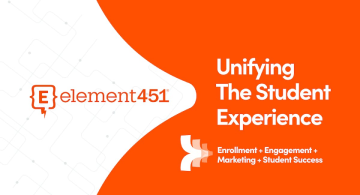
About Element451
Boost enrollment, improve engagement, and support students with an AI-driven CRM and agent platform built for higher ed. Element451 makes personalization scalable and success repeatable.
Categories
New Blog Posts
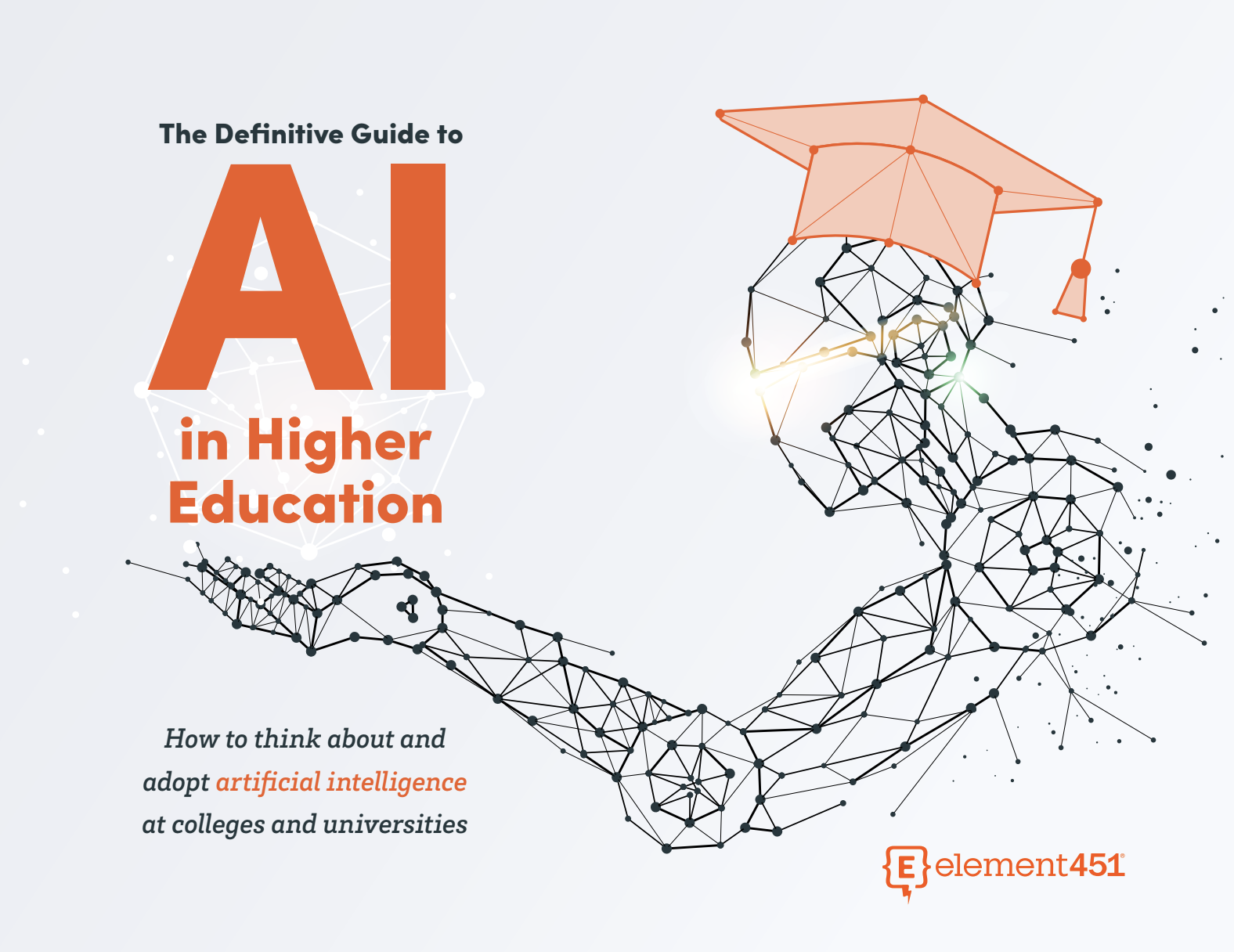
The Definitive Guide
AI in Higher Education
Bridge the gap between the latest tech advancements and your institution's success.
Useful Links
Related Articles

Talk With Us
Element451 is an AI-driven CRM and AI agent platform for higher education. Our friendly experts are here to help you explore how Element451 can improve outcomes for your school and students.
Get a Demo


